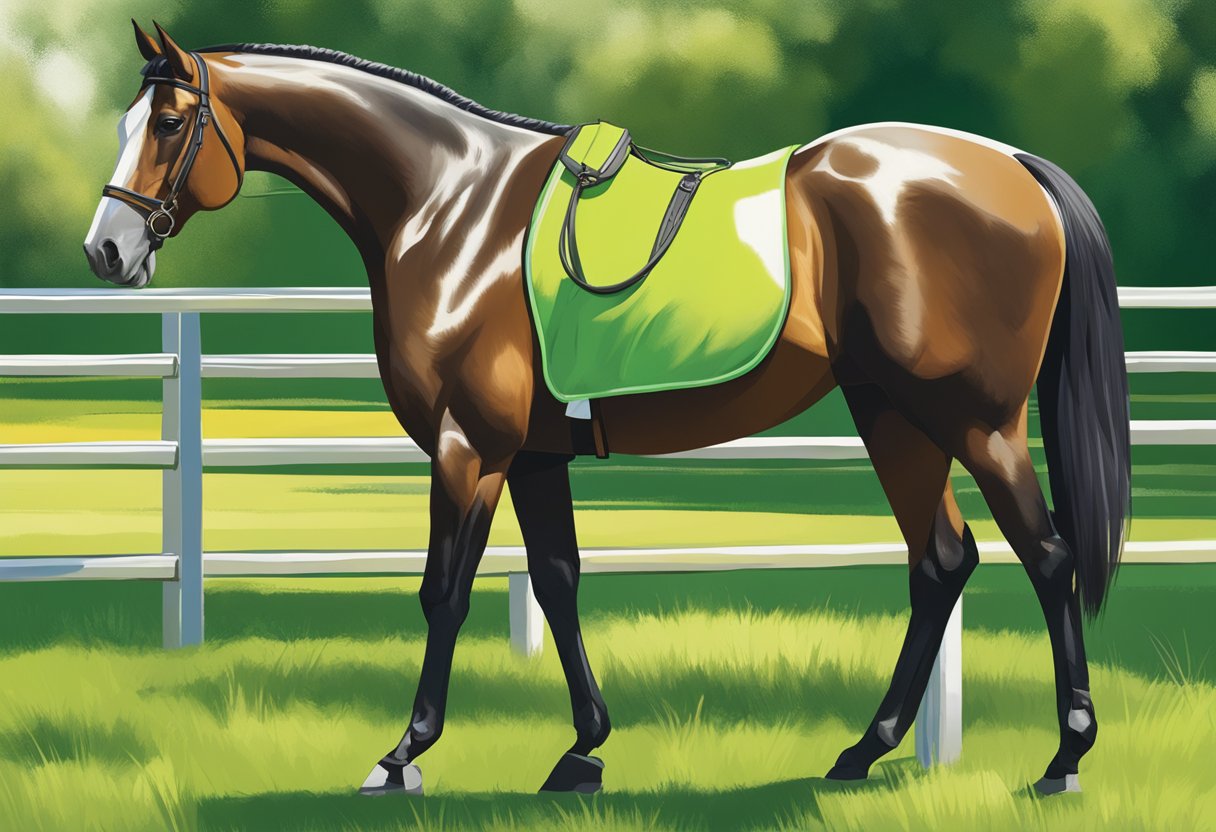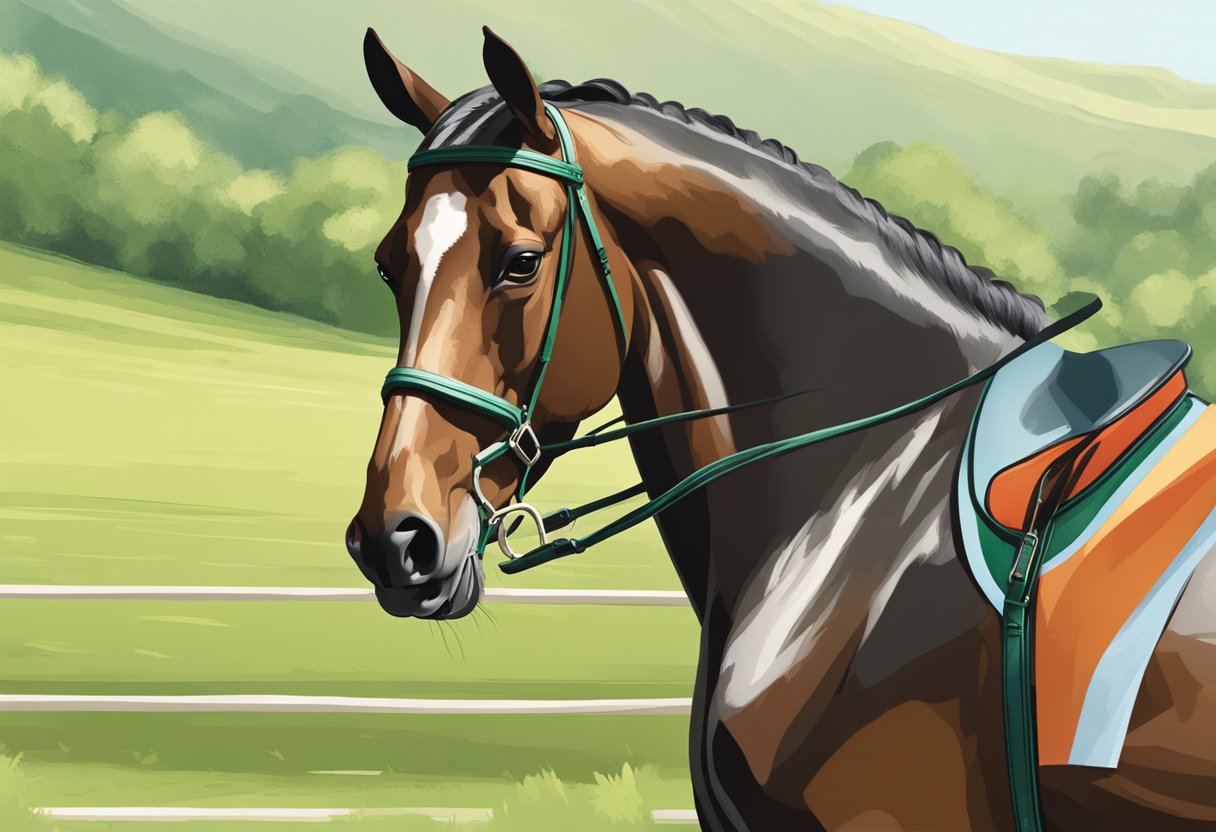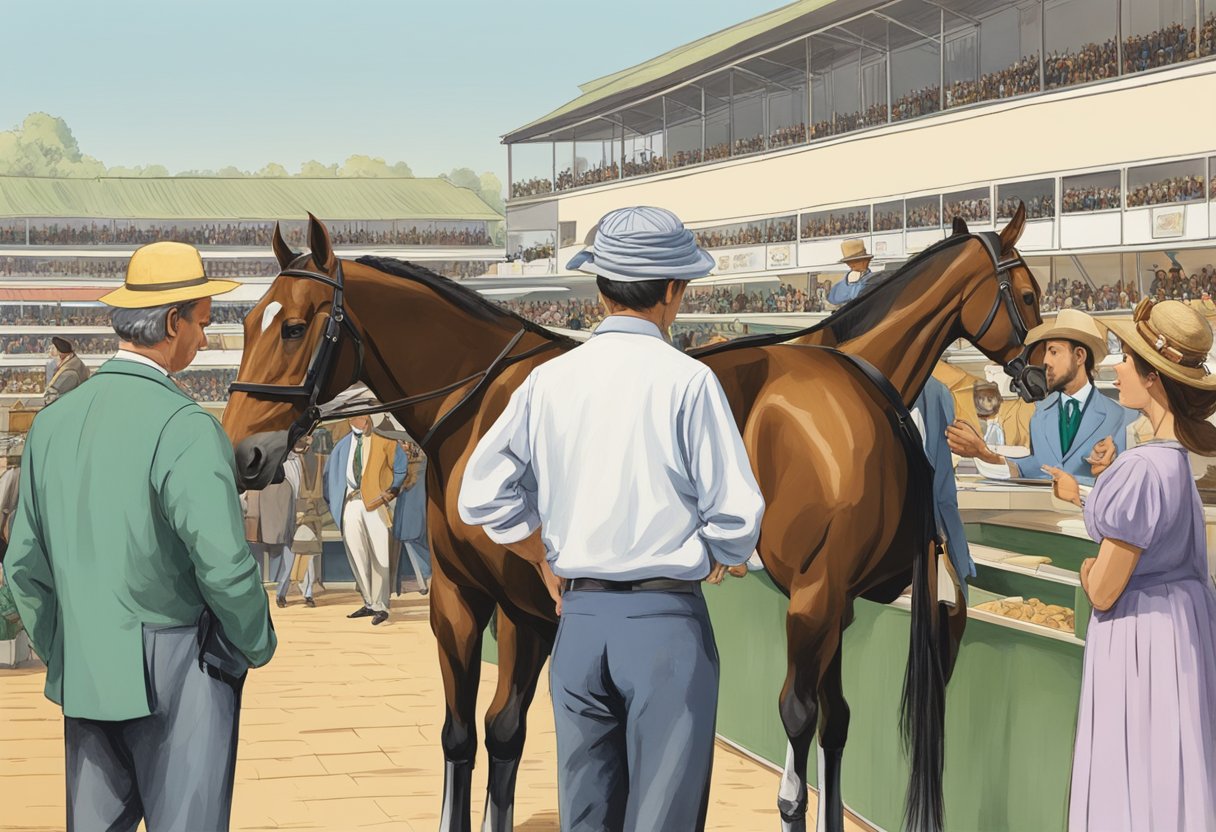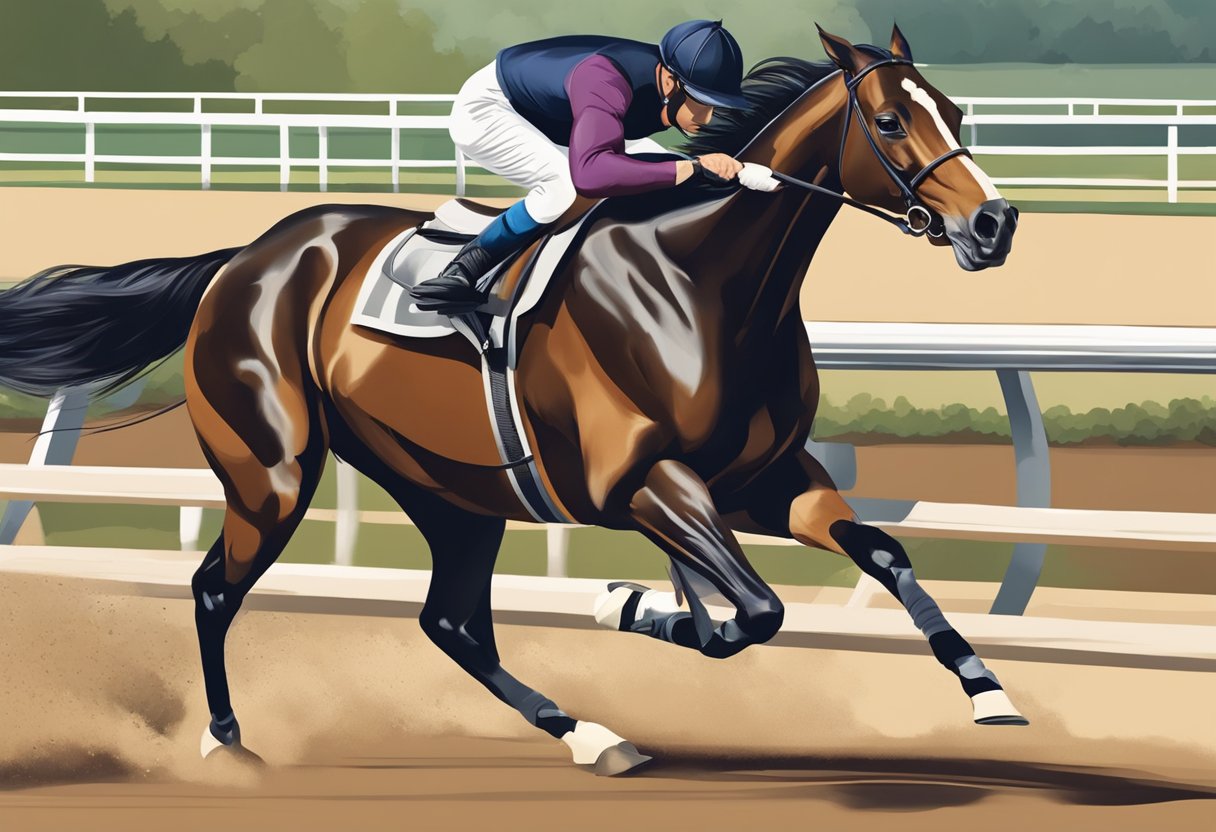[ad_1]
The allure of horse racing captivates many, and the idea of owning a racehorse is a dream that stirs the hearts of equestrian enthusiasts. Purchasing a racehorse is an intriguing prospect, offering not only the potential thrills of competition but also a glimpse into the prestigious world of equine sports. It’s important to recognise that buying a racehorse can represent a sizable financial commitment. The cost of a racehorse can vary widely based on factors such as pedigree, training level, and potential for success on the track.

Owning a racehorse goes beyond the initial investment; it introduces the owner to ongoing expenses such as training, stabling, veterinary care, and entry fees. These costs are influenced by the quality and location of the services provided and can significantly impact the overall financial implications of racehorse ownership. As such, prospective owners are encouraged to understand the complete financial landscape, including both the purchase price and the recurring costs that come with maintaining a racehorse in top competitive condition.
Key Takeaways
- Racehorse prices fluctuate based on pedigree and racing potential.
- Ownership incurs ongoing costs like training, care, and competition fees.
- Understanding the full financial commitment is crucial before purchasing.
Understanding Racehorse Ownership

Racehorse ownership in the UK is complex, involving various types of ownership, each with its benefits and considerations. Prospective owners should understand these differences and the role of syndicate managers who can aid in navigating the intricacies of the industry.
Types of Ownership
There are a few primary ways to own a racehorse:
- Sole Ownership: The owner has 100% of the horse and is responsible for all costs. They enjoy all the benefits, such as potential prize money and the personal attachment to the horse.
- Partnerships: Ownership is divided between two or more people, sharing both the costs and the rewards.
- Syndicates: A group of people come together to share ownership. A syndicate manager typically manages the horse.
- Racing Clubs: Membership in a club that provides the experience of ownership without actually owning the horse.
Owning a Racehorse: Pros and Cons
Owning a racehorse can be thrilling but comes with considerations:
Pros:
- Emotional Rewards: The excitement and satisfaction of owning a successful racehorse.
- Financial Benefits: Prize money and potential increase in the horse’s value.
Cons:
- Costs: Significant financial commitment including purchase price, training, veterinary care, and more.
- Risk: There are no guaranteed returns in horse racing.
The Role of a Syndicate Manager
A syndicate manager plays a critical role in horse ownership:
- They manage the syndicate’s day-to-day operations, including finance and communication.
- A good manager ensures that the syndicate runs smoothly and that all members understand their sponsorship and potential returns.
Initial Costs and Investment
Purchasing a racehorse represents a significant financial commitment, with various factors affecting the initial cost. Prospective owners should consider not only the purchase price but also the avenues through which they can buy a racehorse and the potential for sharing the financial burden through syndicates and partnerships.

Purchase Price Factors
The purchase price of a racehorse can vary greatly and is influenced by several factors including its pedigree, age, and previous performance. The lineage of the horse, particularly the success of the sire and dam, plays a crucial role in determining value. Yearlings, which are horses between one and two years old, typically command a range of prices depending on these factors.
Auction and Sales Considerations
Attending sales events is a common way to acquire a racehorse. The price at auction can be unpredictable, with some horses fetching significantly higher sums than others based on bidding dynamics and potential seen by buyers. Buyers must also consider auction fees, which can add to the overall investment.
Syndicate and Partnership Fees
Joining a syndicate or forming a partnership can mitigate some of the high costs of ownership. By pooling resources, members pay a proportion of the purchase price and related expenses. Each syndicate or partnership will have its own fee structure, often requiring an initial buy-in plus ongoing contributions for the horse’s care and training.
Costs Beyond the Purchase Price

Owning a racehorse involves an array of costs beyond the initial purchase price. Prospective owners must anticipate expenses such as training fees, veterinary care, insurance, and daily upkeep, which are critical for the horse’s maintenance and competitive performance.
Training Fees and Expenses
Monthly training fees typically range from £1,500 to £2,500. These fees cover the cost of professional trainers who prepare the horse for race days, with expenses for employing staff, transport to races, feed, and the use of training facilities. Additional costs may include entry fees for races, which vary depending on the event.
Veterinary Care and Health
Veterinary care is essential to ensure the health and well-being of a racehorse, with annual costs averaging £1,200 to £3,000. This includes routine check-ups, vaccinations, dental work, and any emergency treatment. Farrier services for hoof care must also be considered, typically around £100 per visit.
Insurance for Racehorses
Securing insurance for a racehorse can protect owners against various eventualities, such as injury or the horse’s death. Premiums vary but might comprise 3–5% of the horse’s value annually, depending on coverage options.
Stabling and Daily Upkeep
The cost of stabling encompasses the horse’s accommodation and daily care. Owners should expect to pay an average of £100 per week for full livery. The daily upkeep includes costs for bedding, feed, and grooming supplies, which can amount to several thousand pounds annually.
Racehorse Performance and Maintenance

Selecting the optimal racehorse and ensuring its continuous maintenance are pivotal factors that heavily influence its performance on the track. It involves strategic training, understanding lineage, and preserving the horse’s fitness and well-being.
Selecting and Training Your Horse
When investing in a racehorse, one must consider the trainer’s expertise as it directly impacts the horse’s racing record and future performance. Traditional training fees in the UK can encompass a substantial portion of yearly expenses, amounting to an average of £23,000 for flat racing and around £17,000 for National Hunt. The trainer’s role is to refine the horse’s skills, temperament, and racing aptitude through rigorous and tailored training regimes.
The Importance of Pedigree
A thoroughbred’s lineage holds valuable information about its potential ability and suitability for either flat or jump racing. Pedigree research gives insights into the horse’s inherent capabilities, hinting at its predisposition to excel. Horses that descend from a line of proven winners usually command higher prices, but they also bear the promise of superior performance levels.
Maintaining Well-Being and Fitness
The well-being and fitness of racehorses are imperative for maintaining high performance, necessitating regular veterinary care, farriery services, and suitable stabling conditions. Costs for such maintenance can vary but may range from £1,000 to £14,000 per month, with more advanced facilities demanding higher fees. These expenses ensure that the horse remains in peak physical condition, preventing injuries, and promoting health, which in turn affects the horse’s performance and longevity on the track.
Financial Considerations
When considering the purchase of a racehorse, potential owners should prepare for significant financial commitment. This consists of not only the initial purchase price but also ongoing costs and fees. Understanding these expenses is crucial for maintaining a balance between investment and potential returns.
Entry Fees and Racing Costs
Racehorse ownership entails various fees that are essential for participating in races. Entry fees are a crucial component of these costs. These fees can significantly alter depending on the race’s prestige, location, and level of competition. Typically, entry fees can range from a few hundred to thousands of pounds for high-profile races. Racing costs also include transport to venues, jockey fees and the costs associated with maintaining racing condition.
- Entry fees for local races: £200 – £1,000
- Entry fees for major races: several thousands of pounds
- Transportation: varies based on distance and transport type
- Jockey fees: typically a fixed fee plus a percentage of winnings
Prize Money and Earnings
The allure of racehorse ownership is often connected to prize money. Prize money varies greatly, with prestigious races offering significant winnings that can compensate for maintenance costs and fees. However, earning substantial prize money is competitive and not guaranteed. Owners should consider the potential earnings a horse may yield over its racing life but also appreciate the uncertainties tied to the sport.
- Group 1 races: potential for hundreds of thousands to millions in prize money
- Lower-tier races: earn a few hundred to several thousand pounds
Calculating Potential Returns
Owners should calculate the potential returns of owning a racehorse against the considerable costs involved in its upkeep and racing participation. The initial purchase price and cost of owning a racehorse—including training, housing, and medical care—can affect the financial balance. Potential returns are influenced not only by prize money but also by breeding potential and sale value.
- Cost of owning a racehorse annually: £17,000 – £29,000 on average
- Breeding potential: may provide additional income post-racing career
- Horse sale: can recoup investment depending on horse’s success and condition
Maintaining a detailed budget and considering all potential income streams and costs will provide owners with a clearer picture of the financial health of their investment.
Need Help Beating the Bookies?
Our expert betting tipsters have been taking cash off the bookies since 2014! If you need a helping hand with winning then why not check them out?
Experiencing Racehorse Ownership
Racehorse ownership can be an exhilarating endeavour, offering individuals access to exclusive racing clubs, stable visits, and a community of individuals who share a deep passion for the sport of kings.
The Thrill of Racing Club Membership
Membership in a racing club grants individuals a special entry into the world of horse racing. It’s an opportunity for a group of people to own a share in a racehorse, thus making the ownership experience more accessible. Racing clubs typically handle the day-to-day decisions and responsibilities, which diminishes the burden on any single member. Club members can look forward to the excitement of race days, with the added benefit of being directly involved with their horse’s performance.
Stable Visits and Owner Privileges
Owning a racehorse often comes with the privilege of stable visits, where owners can observe their horse’s training and care. These visits are a tangible way to connect with the horse and the thrill of ownership. Owners are typically permitted to attend training sessions, meet with the trainers, and gain a deeper understanding of their horse’s needs and abilities. Such visits underline the commitment to horse welfare and provide an intimate look at the behind-the-scenes operations of racehorse training.
Sharing the Passion for Racing
The shared experience of owning a racehorse can foster a strong sense of community among members. This common ground creates a network of individuals who, regardless of their extent of involvement, share a unified passion for racing. Whether discussing strategy, celebrating victories, or sympathising over losses, the camaraderie found within these circles is a testament to the sport’s power to bring people together over their mutual love for racing.
Legal and Regulatory Aspects
In the realm of racehorse ownership, navigating the legal and regulatory landscape is crucial. Owners must adhere to specific registration mandates and comprehend the intricate ownership regulations.
Registration and Racing Authorities
The British Horseracing Authority (BHA) is the governing body responsible for overseeing the registration processes for ownership and the thoroughbred racehorses themselves. They ensure that all the necessary steps are taken in accordance with the regulations of the sport. Registration involves submitting detailed information about the horse, including its name, pedigree, and microchip number, to the BHA for their records and race entry eligibility.
Owners are also required to register their colours, which are the distinctive silk patterns and colours their jockey will wear. This registration is essential for the identification of the horse and owner during races and is a one-time process, unless changes are made.
Understanding Ownership Regulations
Ownership regulations delineate who can own a racehorse and the responsibilities they must assume. In the UK, ownership can take several forms:
- Sole ownership – one individual has complete control and receives all the financial benefits and liabilities.
- Partnership – two or more individuals share the joys and costs of ownership.
- Syndicate – a group where each member owns a share in the horse, managed by a syndicator.
- Company ownership – a legal entity that owns the horse, often used for tax or commercial reasons.
Each ownership structure has specific regulatory requirements and implications, particularly regarding the distribution of winnings and the sharing of costs. The BHA provides guidance and rules which outline how prize money is distributed and the agreements that need to be in place for each type of ownership. It is imperative that owners fully understand these rules to ensure compliance and protection of their interests.
The Future of Your Racehorse
Owning a racehorse is a dynamic investment that requires forward-thinking strategies, not only because a racehorse’s career on the track is limited, but also because unexpected challenges, such as injuries, can alter their career path. Consequently, an owner must be prepared for both the retirement and resale of their racehorse, and knowledgeable about managing injuries and recovery processes.
Planning for Retirement and Resale
Owners should anticipate their racehorse’s lifespan on the track and meticulously prepare for its retirement. Racehorses usually retire from the track due to age or decreased performance, and planning helps ensure a secure future for the horse. A racehorse’s market value at sale fluctuates based on its performance and pedigree. The resale of a racehorse can sometimes represent a return on investment, particularly if the horse has had a successful racing career.
Coping with Injuries and Recovery
Injuries are an inherent risk in the racing industry, and managing them effectively is crucial for the racehorse’s welfare and the owner’s financial considerations. Common injuries like tendon strains or fractures can necessitate rest and rehabilitation, potentially hindering future performance.
Owners must remain vigilant and committed to their racehorse’s well-being throughout its racing tenure and beyond, balancing ambitions on the track with the reality of eventual retirement.
Frequently Asked Questions
Purchasing and maintaining a racehorse involves various expenses that potential owners must consider. This section addresses common financial queries related to the endeavour.
What is the initial outlay for purchasing a racehorse?
The initial cost to buy a racehorse can vary greatly. Factors such as pedigree, training level, and potential can drive prices from a few thousand pounds to several million.
What are the regular financial commitments associated with racehorse ownership?
Owning a racehorse entails yearly expenses including training, stabling, veterinary care, and entry fees. Costs can range between £17,000 and £29,000 per annum in the UK.
Can one partake in racehorse ownership through syndication, and what is the cost?
Syndication allows for shared ownership of a racehorse, reducing individual costs. Shares can be expensive, depending on the horse’s value, but syndicates often offer a cost-effective entry into ownership.
What is the average monthly cost of training a racehorse?
Monthly training fees for a racehorse in the UK can average between £1,500 and £2,500, inclusive of basic keep, exercise, and care, but excluding veterinary or exceptional costs.
Is owning a racehorse a financially viable investment?
Racehorse ownership can potentially yield financial return through prize money and breeding, but it is not guaranteed. Owners should view it as a high-risk investment.
What factors contribute to the fluctuation of racehorse prices in the UK?
Racehorse prices are influenced by performance, breeding lines, age, and market demand. A successful racing record or desirable lineage can significantly increase a horse’s value.
[ad_2]


